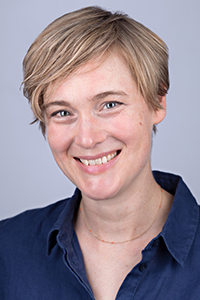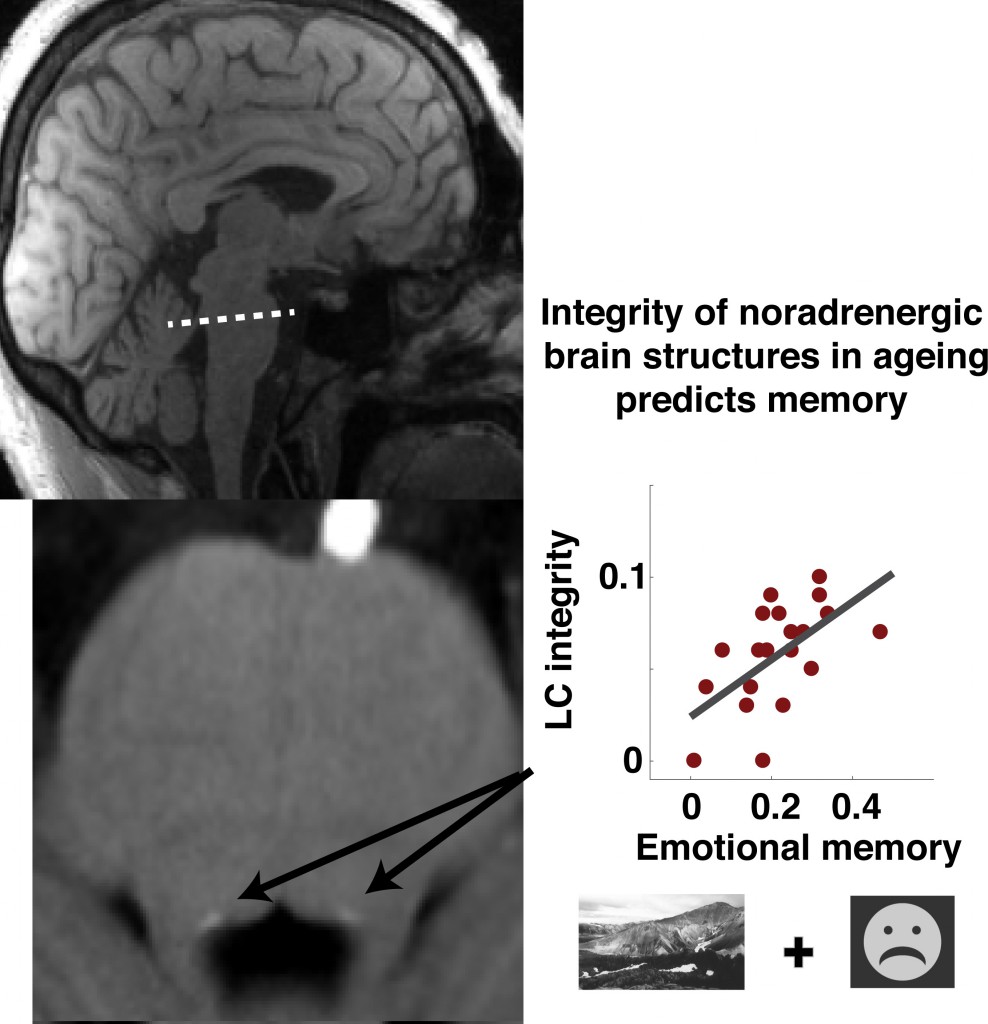Postdoctoral fellow at Clinical Neurophysiology and Memory Group and Institute of Cognitive Neurology and Dementia Research, German Centre for Neurodegenerative Diseases (DZNE), Magdeburg and RUK (Alzheimer Research UK) Senior Research fellow bei (UCL (ICN und Division of Psychiatry) London
My research explores how age differences in the brain, and in particular in neuromodulatory systems, inform age differences in cognitive functions, in particular in attentional control, decision making, and memory across the lifespan. In my current research, I am focusing on developing novel imaging tools to assess the noradrenergic system in healthy ageing and early dementia, as well as on developing pathways to improving cognitive functions in healthy and pathological ageing.
Figure 1:
It is a well known fact that events related to negative events are better remembered (A and F). This enhancement of encoding negative events into memory is supported by noradrenaline. We showed that, in older adults, the integrity of their noradrenergic brain stem nuclei (B-D) can predict the extent to which they can remember scene stimuli related to negative events (E). Those older adults with a larger Locus Coeruleus (LC) integrity remembered scene stimuli before loss feedback, but not before gain feedback better (not shown).
This suggests that a decline in memory in ageing is in part related to a reduced noradrenergic modulation. It also motivates in vivo LC integrity assessments in early dementia as the LC is first affected by cytopathology in AD.
Keywords: ageing – dementia – neuromodulation – neuroimaging – memory
Location: DZNE
Webpage: Link

